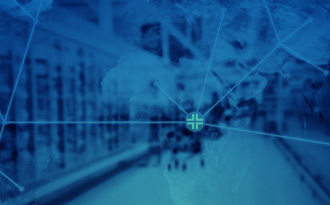The Hospitality and Lodging Industry: Reopening in the New Normal
During the height of lockdown restrictions, shelter-in-place orders forced many hotel and lodging businesses to temporarily close to flatten the curve. In some cases, regulations prohibited businesses from reopening, and the number of travelers and guests began to decline so drastically that it no longer made sense for hotels to continue operating during the pandemic. Since those measures were implemented, businesses have struggled to return to a sense of normalcy and pre-pandemic occupancy levels. Over the past few months, hospitality and lodging businesses have reopened as a first step towards restoring normalcy to everyday lives as the industry recovers. During this process, it is crucial to reopen with considerations towards the health and safety of guests, staff, and the community.
Guest and Staff Safety is Paramount
Maintaining hygiene, enforcing new standards of cleanliness, and ensuring social distancing protocols are in place have become the new normal facing businesses, particularly those in frontline facing industries. The Asian American Hotel Owners Association published a resource on Reopening or Transitioning Your Hotel Post-Covid-19 that outlines a list of action items to implement at hotel and lodging properties. Additionally, the American Hotel and Lodging Association developed a program called Safe Stay, created by a group of lodging industry leaders with the goal of overcoming health and safety challenges and focus on enhanced cleaning procedures and protocols. It is important to be ready to address emerging health and safety issues and assure guests that all-new safety and cleaning processes are being taken seriously to ensure infection prevention.
Utilizing Automated Technology
The pandemic has pushed automated technology to the forefront of the digital transformation in hospitality and lodging operations. With concerns over COVID-19 transmission through paper bills and coins, cashless systems have gained popularity worldwide. Contactless payment options have become the fastest and safest way for guests to make purchases and for businesses to collect payments. Additionally, utilizing live chatbots and virtual agents can be a safe and efficient way to meet guest needs. Bots and virtual agents are two types of technologies powered by AI and machine learning. They allow users to interact with programs in order to get answers to common questions and be guided towards various places to take action. Today, bots’ capabilities are expanding beyond simple-guided Q&A conversations and offer the ability to transact with other systems. Virtual agents can deliver a powerful user experience, improve productivity, and transform the efficiency of internal operations. Building and implementing bots to respond to questions, needs, and concierge services enable staff to work efficiently and safely without the need for in-person interaction with guests.
Alternative Revenue Strategies in Lodging
Lodging businesses have found unique ways to generate revenue as occupancy rates continue to be lower than in previous years. In some instances, working from hotels has become the new “WFH”.
Some resorts are morphing the “Work from Home” mindset into “Work from Hotels”. Why work from home when you can work from a resort in a vacation destination? Capitalizing on the feeling of cabin fever that many are experiencing, properties are marketing themselves as ideal locations to work from for a change of scenery. A drop in leisure guests and tourists has also resulted in some resorts transforming their business models to attract workers interested in “day-use offices”. With many conferences and events being postponed to 2021 or canceled entirely, converting unused space may be another strategy to consider. With more consumers turning into online retail and shopping, the demand for warehouse and industrial space has skyrocketed. As a result, many properties have considered repurposing large unused space as convention centers to generate additional revenue. Alternatively, many properties across the United States have offered discounts and incentives to first responders and essential workers since the onset of the pandemic. In New York City, hotels have partnered with the NYC Government on the COVID-19 Hotel Program, allowing eligible New York residents to self-isolate on properties.
Hospitality and Lodging Reopening Snapshot
The COVID-19 pandemic has been one of the most vigorous challenges to impact the hospitality and lodging industry. Demonstrating the industry’s resiliency and adaptability, many businesses have pivoted their business models and strategies to attract guests, ensure safety, and generate new revenue streams. As the reopening process continues, the tone is one of optimism and positivity.
The uncertainty of opening a hotel such as this during a pandemic is a bit frightening. However, the overwhelming support our local community and travelers alike have shown is remarkable and touching. Watching the crowds come down to the Riverwalk, strolling through the lobby smiling and sharing in the excitement we created is special. And everything has a fascinating history. I couldn’t be more proud when I walk through this building with a nametag and get pulled aside by a guest, asking me questions about the property. I look at ‘em and smile- “it’s storytime”!”
Seth Richardson
Assistant Director of Sales at the JW Marriott in Savannah
It is this kind of attitude and effort that will help the industry’s recovery in these uncertain times.
contact a member of Withum’s Hospitality Services Group.
Hospitality Services





